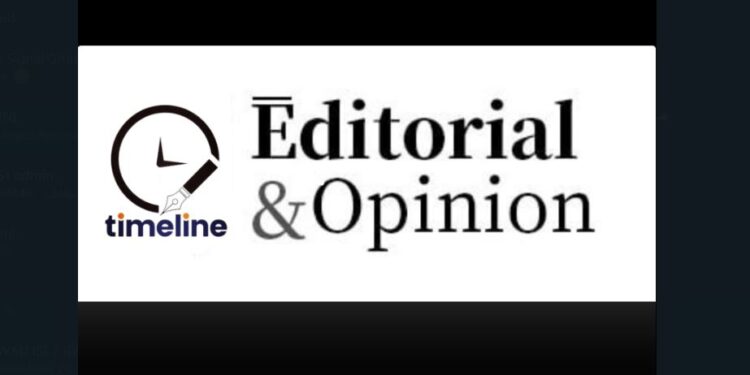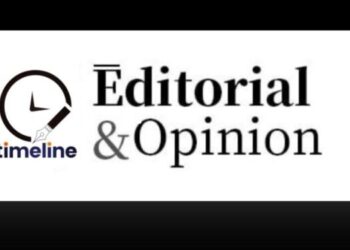(Written By: Abdul Basit Alvi)
While social media has revolutionized communication and information sharing, it also comes with a variety of challenges and drawbacks. Understanding these issues is crucial for both users and society at large to navigate the digital landscape responsibly.
One major concern is the impact of social media on mental health. Research indicates that excessive use can lead to anxiety, depression, and low self-esteem, particularly among young people. The constant comparisons to others, exposure to curated lifestyles, and the pressure to maintain a perfect online image can foster feelings of inadequacy and loneliness.
Social media platforms can also be hotspots for cyberbullying and online harassment. The anonymity provided by the internet often encourages harmful behavior, with individuals targeting others through negative comments, threats, or hate speech. This can have severe emotional consequences for victims, leading to distress and social withdrawal.
The rapid spread of information on social media can result in the proliferation of misinformation and fake news. False information can quickly go viral, influencing public opinion and behavior, especially during critical events like elections or public health crises. This undermines trust in credible sources and fosters confusion and division within communities.
Additionally, social media can be addictive, making it hard for many users to limit their time online. The design of these platforms often encourages prolonged engagement through notifications, likes, and shares, which can interfere with daily life, reduce productivity, disrupt relationships, and diminish real-world interactions.
Users frequently share personal information without fully grasping the privacy implications. Data breaches, unauthorized data collection, and misuse of personal information can jeopardize user privacy and security. Moreover, the enduring nature of online content means that once something is shared, it can be challenging to remove.
While social media facilitates connections, it can also detract from face-to-face interactions. Many individuals may prioritize online communication over in-person relationships, leading to feelings of isolation and loneliness. Over time, this shift can weaken personal bonds and diminish the quality of relationships.
Finally, social media often reinforces existing beliefs by creating echo chambers, where users are mainly exposed to viewpoints that align with their own. This can exacerbate polarization and division within society, as individuals become less tolerant of differing opinions. The algorithm-driven nature of these platforms can further amplify this issue by promoting content that engages users, regardless of its accuracy or fairness. Many social media platforms depend on advertising revenue, resulting in the commercialization of the user experience. Users are often inundated with targeted ads based on their online behavior and personal data, which can foster feelings of manipulation and raise concerns about consumer privacy and autonomy.
One particularly concerning use of social media is its potential for spreading misinformation and false propaganda against a nation and its military. Understanding the importance of a sovereign country and a strong military is vital. The concept of a nation extends beyond geographical boundaries; it encompasses the cultural, social, and political frameworks that define it. A stable and secure country relies on its military to protect national interests and ensure the safety of its citizens.
A country provides its citizens with a sense of identity, fostering a shared culture, language, and history. This collective identity is essential for national unity and pride, helping individuals connect with each other and their homeland. Nations establish governance systems to create laws and regulations that maintain order, protect rights, and promote justice. A functioning government is crucial for implementing policies that meet the needs of the population. It creates an environment that promotes economic growth and development by establishing infrastructure, trade agreements, and financial systems that enable commerce and industry to thrive, ultimately enhancing the standard of living for its citizens. Countries are responsible for providing essential services such as education, healthcare, and welfare, which are fundamental for a healthy, informed, and productive society.
On the global stage, countries engage with one another to form alliances and trade relationships that can improve security and economic opportunities. Diplomatic efforts can lead to peace and cooperation, fostering regional stability.
The primary role of an army is to safeguard a country’s sovereignty against external threats. This includes deterring aggression from hostile nations and ensuring the nation can defend itself if necessary. Additionally, armed forces often play a vital role in responding to natural disasters and humanitarian crises. Their training, resources, and logistical capabilities enable armies to provide relief and support to affected populations, strengthening national resilience. Many armed forces participate in international peacekeeping missions, working to stabilize conflict zones and aid in the rebuilding of war-torn nations. This role promotes international cooperation and enhances global security. In times of national emergencies or civil unrest, the military can assist law enforcement in maintaining order, which is crucial for restoring peace and ensuring citizen safety.
Modern armies prioritize the training and development of their personnel, emphasizing discipline, leadership, and teamwork. These values not only fortify the military but also contribute to cultivating a skilled workforce that benefits the nation. The relationship between a country and its army is symbiotic; a strong military enhances national security, creating a stable environment that fosters growth and prosperity. Conversely, a well-functioning government provides the necessary support and resources for its military, ensuring it is adequately equipped to perform its duties.
In today’s digital landscape, social media has emerged as a powerful tool for communication and information dissemination. However, this power carries significant risks, particularly when exploited for propaganda and misinformation. Such tactics can have serious consequences for countries and their armed forces, undermining public trust, influencing political dynamics, and threatening national security.
Propaganda involves biased or misleading information disseminated to promote a specific political agenda, often designed to manipulate public perception. It can take many forms, including articles, videos, and social media posts. Misinformation refers to false or inaccurate information shared without harmful intent, while disinformation is the intentional spread of false information to deceive. Both can be damaging, especially when they target national institutions like the military or government.
Social media platforms such as Twitter, Facebook, and Instagram have transformed how information is shared and consumed. Their extensive reach allows messages to spread rapidly, often outpacing fact-checking efforts and creating an environment conducive to the proliferation of propaganda and misinformation.
Social media serves as a powerful means of shaping public perception of a country’s military and government actions. Misinformation campaigns can cast armed forces in a negative light, often exaggerating misconduct or portraying military operations as unjust. This can result in decreased public support for military initiatives and foster a culture of distrust toward military and government institutions. For instance, misleading images or videos that depict military actions out of context can provoke outrage and galvanize public opposition, undermining the morale of service members and complicating the government’s ability to function effectively. Misinformation can erode trust in both government institutions and the military. When citizens are overwhelmed by conflicting narratives, it becomes difficult to distinguish truth from falsehood. This loss of trust can lead to apathy or hostility toward legitimate information, making it easier for malicious actors to manipulate public sentiment.
In conflict zones or during crises, the spread of false information can obstruct effective communication, complicate response efforts, and diminish the perceived legitimacy of military operations. Propaganda campaigns on social media are often driven by political motives, aiming to influence elections or public policy. By disseminating false narratives or targeted propaganda, groups can sway public opinion, potentially affecting voter behavior and political outcomes. In some cases, foreign governments have exploited social media to meddle in the domestic politics of other nations, spreading divisive content to foster chaos and instability. Such actions can undermine national unity and create vulnerabilities that adversaries can exploit. The military use of propaganda and misinformation can also be seen as a form of psychological warfare. By spreading disinformation about a country’s military capabilities or morale, adversaries seek to instill fear and uncertainty. For example, exaggerating military losses or portraying the armed forces as ineffective can demoralize troops and erode public confidence in their abilities.
Social media also acts as a recruitment tool for extremist groups, which can utilize propaganda to advance their agendas and incite violence against the state. By disseminating false information about government actions or military operations, these groups can manipulate public sentiment. This dynamic presents significant challenges for national security, complicating efforts to combat domestic terrorism and maintain social order.
As the digital landscape evolves, it is vital for governments, military organizations, and civil society to develop effective strategies to combat misinformation. This includes promoting media literacy, investing in fact-checking initiatives, and encouraging open dialogue about the role of information in society. By tackling the challenges posed by propaganda and misinformation, nations can better safeguard their democratic processes and uphold the integrity of their armed forces.
Social media monitoring has become an essential practice for governments, businesses, and organizations globally. By analyzing data from social media platforms, these entities can gain insights into public sentiment, track trends, and respond to issues in real time.
For example, in the United States, both government agencies and private companies employ social media monitoring. Agencies like the Department of Homeland Security (DHS) monitor social media for potential threats, public safety issues, and national security concerns. The DHS utilizes tools to assess public sentiment during emergencies, such as natural disasters, allowing them to evaluate the effectiveness of their communication strategies and adjust responses as needed. Political campaigns also heavily rely on social media monitoring to gauge voter sentiment and tailor their messaging.
In China, authorities monitor popular platforms like Weibo and WeChat using both automated systems and human analysts to detect discussions that could lead to social unrest.
Brazil employs social media monitoring to tackle political issues and public safety. The government closely watches social media during elections to identify and counter misinformation campaigns that may influence voter behavior, aiming to ensure fair electoral processes and uphold democratic integrity. Additionally, Brazilian law enforcement agencies use social media monitoring to track criminal activity and gang communications, gathering intelligence from online interactions to prevent violence and enhance public safety. In the UK, various government departments utilize social media monitoring to analyze public sentiment and enhance communication strategies. For example, during the COVID-19 pandemic, public health officials tracked social media to gauge public concerns, misinformation, and compliance with health guidelines. This information enabled them to tailor public health messaging to correct misconceptions and boost community engagement.
Additionally, businesses in the UK employ social media monitoring for brand management and customer interaction, allowing them to respond to feedback and identify trends in consumer behavior.
Germany’s approach to social media monitoring focuses on combating hate speech and misinformation. The government has enacted laws that require social media platforms to remove harmful content, making monitoring crucial for enforcing these regulations. Agencies analyze online discussions to identify instances of hate speech, particularly regarding sensitive issues like immigration and nationalism. Additionally, German companies utilize social media monitoring to enhance customer experience and brand loyalty by actively engaging with users and addressing their concerns in real time.
South Korea employs social media monitoring to assess public sentiment on various topics, including political matters and public health. The government uses monitoring tools to analyze conversations during elections and understand voter concerns, informing campaign strategies and policy decisions. In response to the COVID-19 pandemic, South Korea tracked public compliance with health measures through social media monitoring, which facilitated more effective communication and intervention strategies.
Recently, Indian media reported that the Indian Army has been granted authority to directly monitor social media content, enabling it to issue requests for the removal of certain posts. According to the report, the Indian Ministry of Defense has appointed a senior officer to oversee this process, empowered under Section 79 (3) (b) of the IT Act to request the removal of illegal content related to the army. Previously, the Indian Army relied on the Ministry of Electronics and IT for content removal or blocking. Although India has a poor track record on human rights, and their military is likely to exploit this right to further violate human rights, especially in IIOJK, this decision still demonstrates that no country permits others to use social media platforms against them. These examples also illustrate that no country permits the misuse of social media against its national interests or military.
In the context of Pakistan, the country is rich in cultural heritage, strategic significance, and natural resources, holding a special place in the hearts of its citizens. Central to the nation’s identity and security is the Pakistan Army, which plays a vital role in maintaining the country’s stability and sovereignty. Pakistan boasts a diverse population with a rich tapestry of languages, traditions, and customs. This cultural diversity is a source of national pride, fostering unity among various ethnic groups while celebrating their unique identities. The nation’s festivals, art, music, and literature contribute to a vibrant cultural landscape that strengthens social bonds among its citizens.
Strategically located at the crossroads of South Asia, Central Asia, and the Middle East, Pakistan plays a crucial role in regional politics and trade. Its proximity to key global players and resources positions it as an important actor in international relations. The China-Pakistan Economic Corridor (CPEC) exemplifies how Pakistan is leveraging its geopolitical position to enhance economic development and regional connectivity.
Pakistan is endowed with abundant natural resources, including minerals, fertile land, and water. Agriculture is vital to the economy, employing a significant portion of the population and contributing to food security. Effective management of these resources is essential for the country’s growth and sustainability. With a large youth population, Pakistan has great potential for economic and social advancement. Harnessing this demographic dividend through education and employment opportunities can propel the nation forward, fostering innovation and development.
We are fortunate to have an independent country in Pakistan, where we are free to live and work autonomously. After our country, the army holds immense importance for us. The primary responsibility of the Pakistan Army is to safeguard the nation’s sovereignty and territorial integrity. In a region characterized by historical conflicts and security challenges, a strong military presence is crucial for deterring aggression and ensuring peace. The Pakistan Army has taken a leading role in combating terrorism and extremism within the country. Through a series of operations, it has made significant progress in enhancing security and stability, contributing to the safety and well-being of citizens. These efforts have allowed economic activities to thrive in previously unstable regions.
In addition to its military responsibilities, the Pakistan Army is crucial in disaster relief and humanitarian efforts. During natural disasters, such as earthquakes and floods, the army often acts as one of the first responders, providing vital aid and support to affected communities. This capability reinforces the army’s image as a protector and servant of the people.
The Pakistan Army has also engaged in various nation-building initiatives, from infrastructure development to educational programs in remote areas. This involvement underscores the army’s commitment to the country’s overall progress and development, extending its role beyond traditional military functions. Ultimately, the Pakistan Army serves as a symbol of national pride and unity. It nurtures a sense of patriotism among citizens, who view the military as a guardian of their rights and freedoms. The army’s involvement in national events and celebrations further reinforces this connection, fostering a collective sense of purpose among Pakistanis.
In the era of digital communication, social media has become a double-edged sword, offering a platform for free expression while also enabling the spread of propaganda and misinformation. In Pakistan, both the nation and its military—often regarded as a symbol of national pride—have become targets of disinformation campaigns. These campaigns can have serious consequences for national security, public sentiment, and international relations.
Social media is frequently leveraged to manipulate public opinion on political issues. During election cycles or times of political unrest, coordinated campaigns can disseminate false narratives about political parties, government decisions, or military actions. Such narratives aim to discredit opponents, create confusion, or incite unrest among the populace. For instance, misleading posts may circulate claiming that military actions are unjust or politically motivated, undermining public trust in both the armed forces and the government. This manipulation can destabilize the political landscape, leading to increased polarization and conflict.
Misinformation campaigns can significantly impact national security by fostering distrust in the military, which is viewed as the guardian of the nation. False information regarding military operations, troop movements, or security incidents can cause public panic, weakening citizens’ resolve and diminishing support for military initiatives. Adversaries may exploit social media to circulate inaccurate reports about the Pakistan Army’s effectiveness, suggesting failures in counterterrorism efforts or portraying the military as oppressive. Such narratives not only damage the army’s reputation but can also embolden extremist groups by casting doubt on the state’s ability to maintain security.
Misinformation can exacerbate divisions within society, especially in a diverse country like Pakistan. Social media is often used to promote sectarian or ethnic tensions, which can lead to violence and civil unrest. Propaganda targeting specific communities or highlighting perceived injustices can incite fear and hostility, undermining social cohesion and national unity. By framing conflicts in polarized terms, these campaigns manipulate public sentiment, making it challenging for the government and military to cultivate a sense of shared identity and purpose among citizens.
Additionally, misinformation about Pakistan can have far-reaching implications for its international relations. False narratives can influence perceptions in foreign countries, potentially straining diplomatic ties. For instance, exaggerated claims of human rights violations or military aggressiveness can shape global discourse, leading to diplomatic isolation or unfavorable foreign policies. These narratives are often amplified by international actors or media outlets with particular agendas, making it challenging for Pakistan to effectively counter the harmful effects of misinformation.
Recognizing the threat posed by propaganda and misinformation, the Pakistani government and military have begun implementing strategies to address these narratives. Educating citizens about the risks of misinformation and promoting digital literacy can help individuals distinguish credible information from falsehoods. Government agencies are increasingly monitoring social media platforms to identify and counteract misleading narratives. This includes collaborating with tech companies to track and limit the spread of harmful content.
The Pakistan Army and government officials are also engaging more proactively with the public on social media, providing accurate information and directly addressing concerns to build trust. Additionally, establishing firewalls for social media monitoring can offer several significant benefits for Pakistan. By monitoring social media activity, authorities can identify and mitigate potential threats before they escalate, ensuring a safer environment for citizens.
During emergencies, monitoring social media can provide real-time insights into public sentiment and behavior, facilitating more effective communication and response strategies. Data collected from social media monitoring can inform government policies, helping to address public concerns and improve governance. Firewalls can protect vulnerable populations, especially young users, from harmful content and cyberbullying, promoting a healthier online environment. The implementation of monitoring systems can be combined with public awareness campaigns to enhance digital literacy and empower citizens to recognize and combat misinformation.
There is an urgent need to establish a robust mechanism to monitor and control the influx of misinformation and false propaganda targeting Pakistan and the Pakistan Army on social media, similar to measures in place in many other countries. This issue has become a significant threat to our national security, and spreading hatred against our homeland and our brave military should not be tolerated. Strict actions must be taken against those who promote such divisive narratives for their own interests or serve the agendas of our adversaries, aiming to weaken the country.























